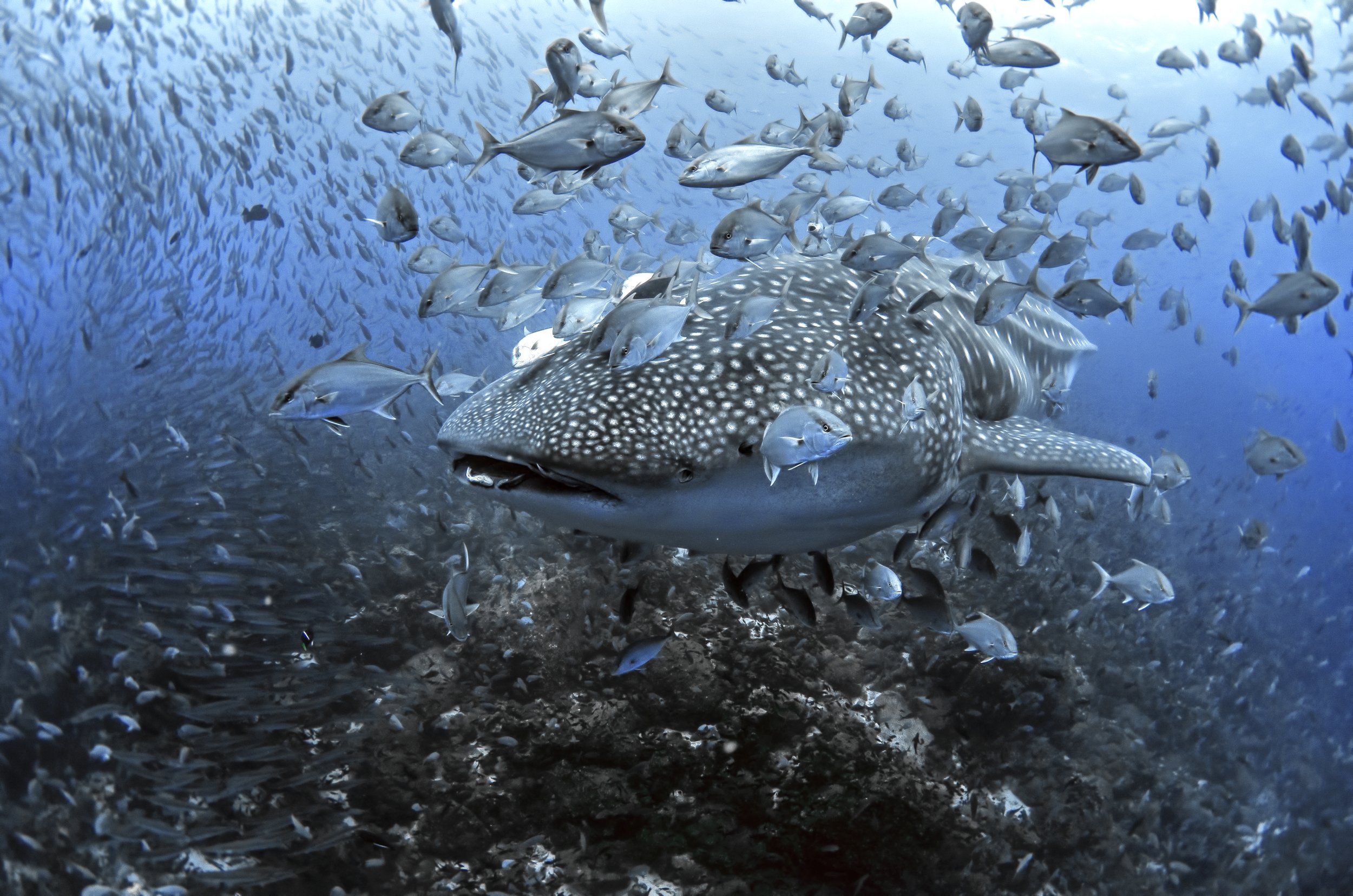< back
Meet Sofia the
Whale Shark
Sofia is an adult female whale shark, about 40ft (12m) in length, that MMF first spotted in July 2022. Since then, she's swum over 4,500 miles through the Galapagos Archipelago and Eastern Pacific, last heard from in the seasonal whale shark feeding area off Peru. Adult whale sharks are true ocean wanderers, rarely approaching the coast – they have been tracked diving over a mile deep – and the Galápagos is the only place where large females are consistently seen.
Explore the sections below to discover more about Sofia’s habitat and MMF’s groundbreaking work to protect whale sharks.
Galapagos Islands
Hotspot For Adult Female Whale Sharks
The Galapagos Islands Whale Shark Project focuses on whale sharks in the Galapagos archipelago, a global hotspot for adult whale sharks. Nearly all of the whale sharks here are female, which makes the Galapagos Islands one of the only areas in the world where researchers can reliably find adult females. This gives MMF a unique opportunity to gain valuable insight into whale shark reproduction, since there has only ever been one examination of a pregnant female whale shark to date.
Using science to protect whale sharks
As part of their pioneering research, MMF has conducted the first-ever ultrasound scans of wild whale sharks, taken blood samples to look at reproductive hormones, and attached satellite-linked tags to large females in order to learn more about their reproductive ecology and movements. All of this research is geared towards understanding and protecting the whale sharks of this region. Due to the high concentration of adult females, this area is especially important to safeguard because of the vital role it will play in the recovery of the whale shark population.
MMF pioneered the first application of underwater ultrasound to study the reproductive biology of whale sharks in the wild, using jetpacks to keep up with the animals.
MMF researchers attach satellite-linked tags to the fins of whale sharks to study their movements and long-distance migrations.
Jenny Wack from the Galapagos Whale Shark Project collecting a blood sample from an adult whale shark.
By protecting whale sharks, we preserve the whole ecosystem
Thanks in part to the efforts of MMF, the Galapagos Marine Reserve has been expanded to help protect these awe-inspiring creatures – the largest fish in the ocean – from the threats posed by overfishing. Whale sharks are key to marine conservation because they are considered an umbrella species. Creating a bigger marine protected area through whale shark data helps to safeguard the entire ecosystem, including many other endangered species like hammerhead sharks (below) and sea turtles.
By protecting whale sharks, we can protect other species living within the habitat, like the critically endangered hammerhead shark. Photo taken in the Galapagos by MMF’s Dr. Simon Pierce.
Whale sharks migrate across vast stretches of the ocean, so they share a habitat with a wide array of species.










